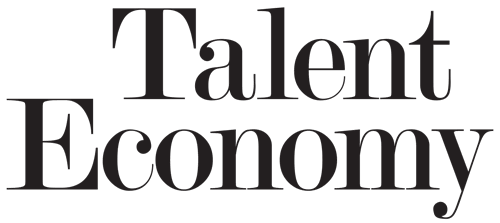Building employee engagement requires a strong company culture that focuses on rewards and praise.
Employee engagement is a code that has consistently been difficult for companies of all industries to crack. Studies have shown that increases in engagement and retention yield significant growth in production as well as savings to the bottom line. Whether the goal is keeping and motivating the great people currently in your organization or attracting new talent, organizations need to take a look at how well their workplace culture is supporting and empowering their people. Here’s the thing that too many companies get wrong: when we’re talking about culture, we don’t mean the plaques on the wall or the foosball table in the corner; we’re talking about the concrete systems, values and behavioral norms that are instilled throughout the organization.
Why Bother With Building a Culture?
People are the heart and soul of every organization, and management’s top priority should be making sure that they have all the tools they need to succeed. One tool that many managers fail to employ often enough is praise. Praising and recognizing employee efforts and successes is a key driver toward empowerment, and it just isn’t happening often enough. In fact, according to a Gallup poll, employees who report that they are not adequately recognized at work are three times more likely to say they will leave in the following year. This statistic is a startling realization for many senior managers, who are all too often preoccupied with production numbers and shareholder dividends to put energy into workplace culture initiatives.
Praising 101
When we talk about praise and recognition, keep in mind that it means more than just saying “good job” or “nice work”; we have to be specific, authentic and importantly, spontaneous. The more we can get to know people and learn about their strengths and difficulties, the more we can show that we acknowledge their triumphs, especially when it is in an area that they generally struggle.
Take this example: “Wow, Julie! That presentation you just gave was extremely compelling from a visual and verbal standpoint. I know you have been working on your public speaking and you’ve made some real progress.” This does so much more for Julie than just hearing “nice job”; it lets her know specifically what she did well, motivates her to do well in the future and, crucially, reminds her that her manager knows her on a deeper level and is paying attention to her growth and development. In working environments like these, employees are sure to flourish and feel empowered to perform at their peaks because they know that what they do is valued.
Systems for Praise: Financial and Nonfinancial
Recognizing people through one-to-one communication is a great way to strengthen bonds with team members and employees on an individual level, but developing a widespread culture of empowerment takes organizational systems and programs. These programs can be adopted from other organizations with cultures that you would like to mimic, or they can be entirely specialized to the specific culture of your company. One example is having a companywide award ceremony to recognize the most productive, innovative, communicative or supportive members of the organization.
We’ve seen some companies where CEOs and senior managers will devote their time to having a lunch or dinner with successful teams to give them individual attention. We also see companies develop technology platforms for individuals to easily praise one another publicly. One company that currently employs this praise platform even gives out prizes to employees with the most compliments from their peers, ranging from extra paid time off to gift cards and money worth up to $15,000. This kind of investment in culture-building programs says loud and clear that this is something that’s important to management. It also brings us to another component of engraining culture initiatives into the fabric of a company culture: financial rewards.
Generally speaking, employees try to focus their efforts and goals on what they believe managers think is most important. That’s why senior management’s commitment to these programs is so vital; when employees see that their supervisors care, they will as well. That’s why we always preach the importance of incorporating financial rewards into culture-building systems. Money talks. That means things like making performance bonuses a much larger portion of an employee’s salary, for example, or giving a successful team a shared bonus that not only applauds their achievements but also strengthens their bonds with one another. Sometimes companies will even give innovation teams a percentage of revenue gained from their new products and services launched. These in particular are such great programs because the level of bonus they receive is directly tied to how successful they were.
The Larger Culture Picture
It takes more than beanbag chains, beer in the fridge and a new company slogan to create a positive workplace culture. The systems and programs needed to develop a culture not only have to be widespread and inclusive, but also align with the values and norms of the individuals that make up the organization. Culture fit is key, and when the pieces of the puzzle are put together well, it creates an environment of heightened empowerment, engagement and morale. When praise and recognition of growth and success are rampant through the office corridors, employees unilaterally develop faster, collaborate more effectively and feel a sense of loyalty and belonging to the organizations that put so much effort into making sure they feel valued.
